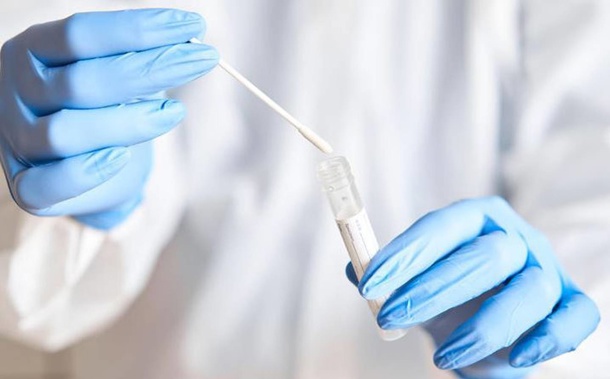
By Nita Blake-Persen of RNZ
Essential workers and a top Covid-19 expert are among a growing group calling for rapid tests to help New Zealand get ahead of the Delta variant spread.
Delta's reach is like nothing New Zealand has seen before - with Covid-19 cases from the Auckland outbreak today reaching 277 and contacts passing 24,000.
That reach has put a massive strain on New Zealand's PCR testing capacity - the only recognised testing used here - with thousands of people waiting up to eight hours to get the test, and then up to five days to get results.
But there's hope that rapid antigen tests - which are widely used overseas - could help alleviate some of that pressure.
The tests, which can be completed at home, involve the testee swabbing their throat or nostrils and mixing that on a special card. It works similarly to a pregnancy test and reveals a positive or negative result in about 20 minutes.
Daniel Elliott is the president and CEO of Innova Medical group which has delivered about one billion rapid tests to the UK over the past six months.
The UK is one of 20 countries Innova is supplying and Elliott said it was helping their communities open up with confidence.
"They use the test to help keep schools open, to keep workplaces going, to be able to keep people that are working in closed environments that are critical infrastructure - police and fire - [going].
"Now they've gained enough confidence with it and they're starting to use it to open up pubs and sporting events, concerts, things like that."
The tests help catch people when they're most contagious. Elliott said it was important to differentiate between people being infected and infectious.
"While somebody may have a positive PCR test, it could be 20 to 30 days that they have an infection, but they may not be contagious to others.
"What this type of test actually does is, is it's really screening for people who have a viral load that is contagious or infectious to other people."
The fast turnaround relieves pressure on testing labs and means people are not isolating unnecessarily.
They are relatively cheap - between $US3 and $US5, and a recent independent study involving 1.7 million kits found they were 99.8 percent accurate.
While the FDA has yet to approve them in the United States, more countries are coming on board and Elliott is applying for Australian approval right now.
He told Checkpoint he could get them here in under a week if given the green light.
"They're inexpensive, highly accurate tests that can be widely deployed in New Zealand and other places, that will certainly help open up the economy."
And as pressure on New Zealand's testing capacity mounts, there is growing demand to roll them out here.
Supermarket chain Countdown is understood to be interested in using rapid tests to help protect its workforce - especially its distribution centres - and is approaching the government about how that might work.
Aged care nurses are also supportive of the tests to keep their highly vulnerable workplaces safe.
New Zealand Aged Care Association (ACA) Nursing Leadership Group chair Dr Frances Hughes said while they currently used their own surveillance testing to monitor staff, rapid antigen testing would make a huge difference.
About 6000 nurses work in the ACA and they are feeling the pressure with staff waiting to get the Covid-19 all clear.
"If we could do this for our frontline health workers and get those tests back and have a system that gets them back quicker and gets them back to work earlier? Absolutely, it would be a great initiative."
But Hughes cautioned that any rollout needed to be done with clear systems and protocols in place to avoid adding stress to an already struggling system.
"It means we can get it early, keep people at home, give them clear direction and understanding but we need those good communication systems.
"Who are they going to ring if it comes positive and get the response? We can't have more in system by a great initiative but not understanding the wider context," she said.
Hughes said she supported a trial taking place, similar to ones being held in New South Wales at the moment.
Auckland University Covid-19 modeller Shaun Hendy said the rapid antigen tests were a vital tool in our covid fight and encouraged the government to roll them out as quickly as possible.
"If we had them widely available now, I think they would be a very useful tool in combatting delta."
Given that some essential workers had already caught the virus, Hendy said a rapid antigen test would help keep those essential services going, and more safely.
He said any inaccuracy risks were made up for by the fact the tests could be carried out so much more regularly than PCR tests, and he believed they could be used together as part of New Zealand's elimination strategy.
Director of Public Health Caroline McElnay said the Ministry of Health was looking into the tests.
"We haven't yet provided a conclusion. The evidence is emerging around the world on that but we continue to keep a close eye on things."
- RNZ
Take your Radio, Podcasts and Music with you









